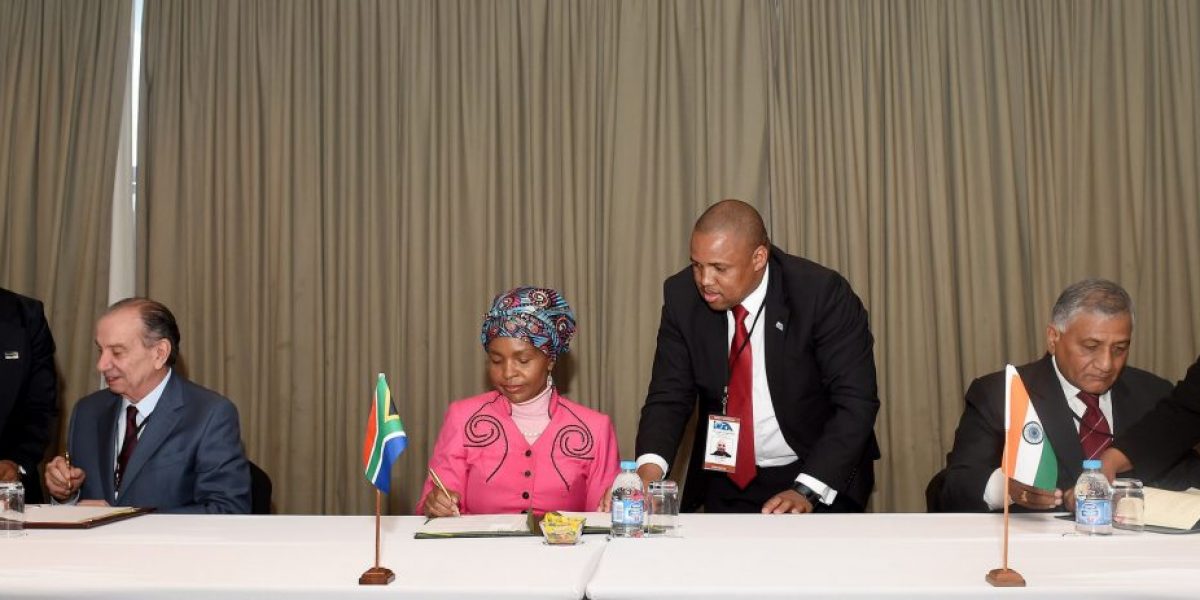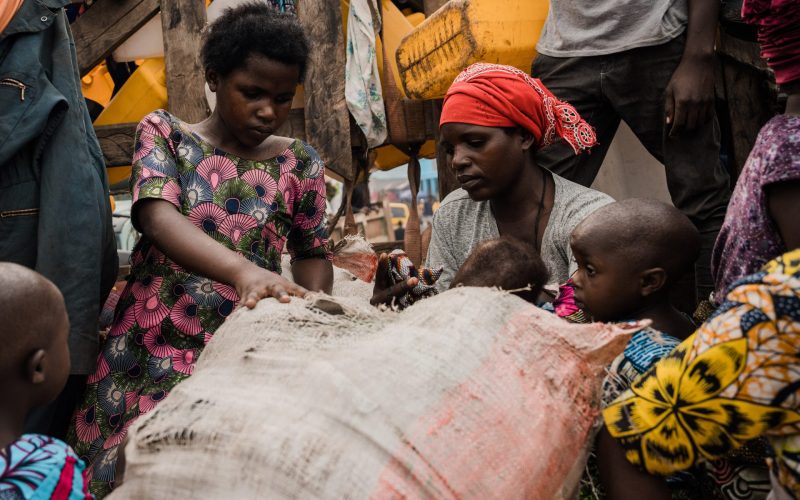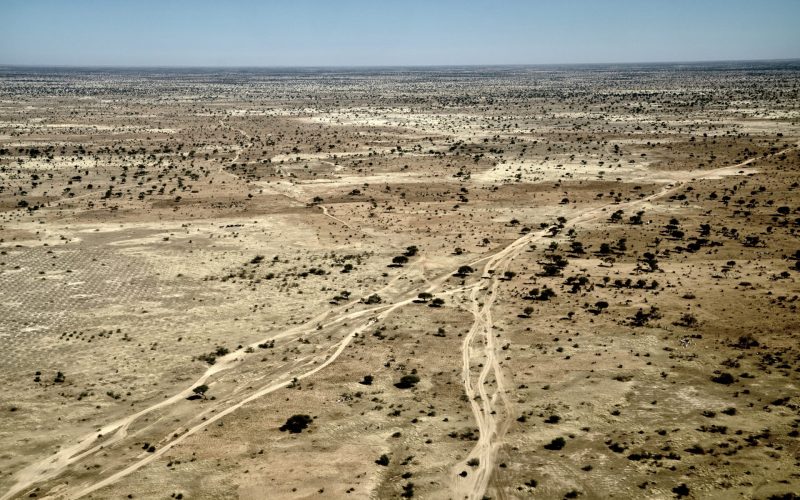An area that is often neglected but which remains a salient component of the wider agenda is defence. Cooperation in this field has been promoted primarily through joint naval exercises known as IBSAMAR of which the first joint operation took place in May 2008 off the south western coast of South Africa. The objective was to enhance the ‘operational-compatibility’ of the respective navies and provide all three participants with a unique training opportunity. It focused on search and rescue operations, shipping safety and casualty evacuation. The success of the 2008 combined operations has led to a decision to schedule an IBSAMAR II to take place in September 2010 – once again in South African waters.
The choice of South Africa reflects its strategic location between the Indian and Atlantic Oceans, which because of piracy in the Gulf of Aden has now resurfaced as an important consideration for international shipping fleets. For example, 30% of the Persian Gulf oil now sails around the Cape of Good Hope. Furthermore, where as 30 – 50 tankers used to sail around this point a decade ago nearly 100 tankers now embark on this route every month. Nonetheless, despite South Africa’s prominent geographical position, it is a relatively insignificant player within the IBSA defensive framework. In terms of military assets, South Africa lags far behind its Brazilian and Indian counterparts. For instance, the South African Navy has a total fleet strength of 22 vessels, whereas the Brazilian Navy has 89 vessels, and the Indian Navy, an impressive 143 warships. A similar comparison of the air and land forces of the three parties yields similar results. Overall India is ranked as the 4th most effective fighting force in the world, where as Brazil is ranked 8th, and South Africa falls astern by coming in at 32nd place.
Although the asymmetry in capabilities is self-evident, the implications of this are less worrisome, in that IBSA’s defensive component is not grounded in a mutual defence treaty. In 2008, following the first IBSAMAR exercise, Indian former Minister of External Affairs, Pranab Mukherjee, said that this type of combined exercise is not aimed at establishing any form of military agreement, but is the manifestation of political cooperation between the three countries of the South. Therefore IBSA provides a essentially a political platform rather than an actual mechanism geared towards enhancing the defensive position of its partners.
However, this is not to say that there is no benefit to be gained from the defensive component of IBSA. With the success of the combined naval exercises, military and air force operations will mostly like follow. South Africa as the junior partner, in particular, stands to gain significantly from this process. This is primarily due to the advantage these exercises provide South Africa, in showcasing the products of its domestic arms industry, as embodied by the state-owned, world class arms manufacturer Denel.
Denel for instance had tendered to supply the Indian military with 400 anti-material rifles in 2005. However the deal collapsed because of allegations by the Indian Central Bureau of Investigation (CIB) that Denel had attempted to bribe Indian officials. Denel was subsequently banned from the Indian market. Negotiations are currently under way to restore the status quo ante. On the Brazilian side, the outlook is brighter. Denel is currently working in a joint venture framework with the Brazilian government to produce the A-Darter homing infrared air-to-air missile. Future prospects for Brazilian and South African cooperation efforts include the possibility to become involved in the manufacture of Brazil’s new Embraer KC 390 transport and tanker aircraft. In addition, production of Denel’s proposed Umkhonto ER, extended range surface-to-air missile, poses another area of potential cooperation.
There exist a number of additional gains which can be made through the IBSA framework which are not specifically orientated towards defence, but have the capability to create positive externalities for the partners in terms of their individual defensive needs. These non-defensive areas of cooperation help to demonstrate the diverse nature of the framework, as well as the fact that the broader relationship is a complex one.
An example of such co-operation would be in the area of micro satellite development. At the recent summit all three partners agreed to establish a trilateral satellite programme, which will aim to produce a single general observation satellite as well as two weather observation satellites. The general observation satellite will have numerous experimental and scientific roles to fulfil, but could feed into a defensive application as well. It would be able to do this by monitoring sensitive shipping lanes, costal waters and land borders, to help prevent cross border incursions and illicit activities, such as drug smuggling.
If these issues are given priority in the future, the defence component of IBSA will be transformed from a limited and abstract cooperative exercise showcasing South Africa’s abilities into an arrangement which in the long run will be far better suited to helping South Africa and its partners achieve meaningful gains.109








